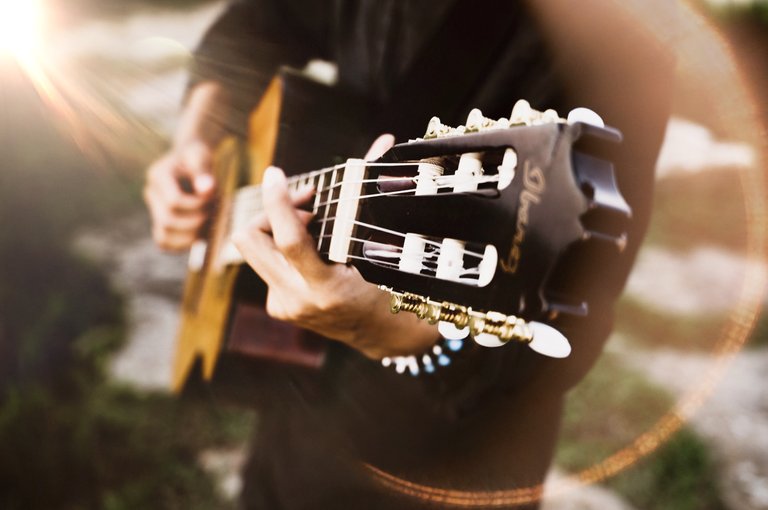
I only ever saw Luc once, but something he said during that visit two decades ago still resonates with me to this day, and perhaps always will.
At the time, my then-fiancé had met Luc and his girlfriend, Vicki, while serving a college internship placement at a non-profit housing development for those with physical disabilities, or health issues otherwise leaving them immobilized. That was where the couple had met, and where they had fallen in love. They both had increasingly-debilitating multiple sclerosis, so they had at least that much in common from the get-go.
My fiancé would regale me with stories about this really cool hippie couple who adored each other, and who as a united front were making the most of their situation. From what was reported to me, Luc would make Vicki laugh at every available opportunity.
After her placement had ended, my fiancé kept in touch with the couple, and several months later her and I went to visit them at the palliative care hospital where they were now living in side-by-side beds due to their respective conditions having worsened.
Luc and I hit it off immediately, as we were both guitarists. From the 1970s onward, he had been in local bands around Ottawa, and along the way had also become a guitar teacher. A Jimi Hendrix poster hung on the wall opposite his bed, featuring a portrait of the guitar god rendered in electrical wires. On another wall was a framed photo from the 1970s of Luc with his former band, their long shaggy hair seemingly at odds with the matching wine-colored tuxes they had donned for the photo shoot.
The poster and the photo served as testaments to the art form that had defined his life and career up until he could no longer play. Despite having now lost the ability to move his arms, the guitar and music itself still defined his inner universe.
At one point in the conversation, he told me that when he was a teacher he could quickly tell a formally-trained guitarist from a self-taught one by observing their technique, or lack thereof. Being in the self-taught camp, I immediately felt myself blushing, and started minimizing my abilities, explaining away this pastime as mere “string therapy” for relieving tension by strumming a few chords at the end of a long day. My insecurities as someone whose love for the guitar far outweighed his proficiency had come rising to the surface with a vengeance, and in that one small moment I was afraid Luc may have been speaking on behalf of those grumpy music store workers or virtuoso customers who would look sideways at untrained interlopers like me noodling around on the merchandise.
My obvious embarrassment seemed to hit him on a very deep level.
“No, no, that’s not what I was getting at,” he said, looking pained at the very idea of such a misunderstanding. “I want to tell you something very important.” With that I pulled up a chair and leaned into his labored words. (Around that time he was starting to have difficulty breathing on his own.)
“I can’t tell you how much I’d love to pick up a guitar and just strum a few chords. But I can’t move my arms anymore, so I’ll never be able to do that ever again. What I’m trying to say is that if playing the guitar is something you truly enjoy, then do it as much as you can, whenever you can. It doesn’t matter what your skill level is. Just do it, and don’t worry about what other people think.”
His words rang in my ear later on after my fiancé and I wheeled Luc and Vicki down the hallway to a common room just off the dining area.
It was just us and a handful of other residents, all of them in wheelchairs, most of them looking out the window in glum silence. Meanwhile, a battered old upright piano sat in the corner, unplayed. In that moment I realized just how much it might have meant to these people to have someone sit down at that piano and simply entertain. I imagined it being nothing less than medicinal.
I found myself wishing I could have been that person. At least if I’d had my guitar on me, I could have played them something. Standing there in that awkward silence, I resolved to develop a repertoire of cover songs on guitar and voice, as well as more self-confidence, so that I could indeed be that person should the need or opportunity arise again.
All these years later, I’m still a somewhat klutzy and self-conscious player, and there’s times when my fingers feel as useful as Polish sausages next to the picking and fretboard acrobatics of more seasoned musicians. Though I’ve expanded my theory and technique immensely since my conversation with Luc, I still consider myself fair-to-middling at best on my instrument of choice.
But I’m okay with that, as I’m able to channel my somewhat idiosyncratic musicality into composing, recording, and releasing original music that I am proud of, jamming with friends and friendly new acquaintances (hello, Musicians of Ottawa Jamming as One), and passing on my musical knowledge and passion to my long-suffering kids in a very hands-on way.
Luc and I were never more than onetime passing ships, but in the absence of any instrument, sheet music, or textbook, Luc the teacher gave me the most important guitar lesson of all just when I had needed it the most. (Turns out it’s about life and living, rather than technique.) Even now, when I feel stymied by my limitations as a player, his words come back to me and I remember to soldier on in the name of music and the joy it brings to those of us forever under its spell.